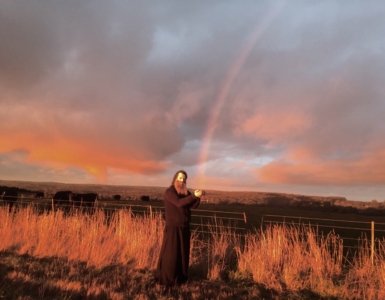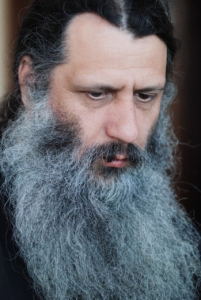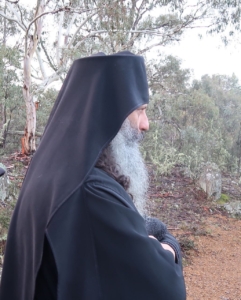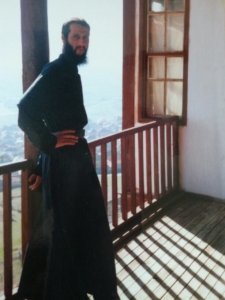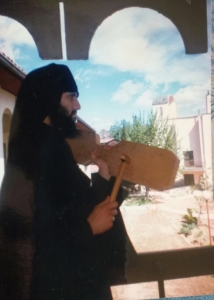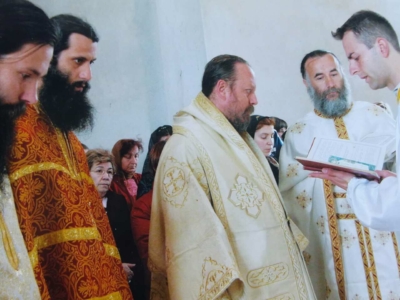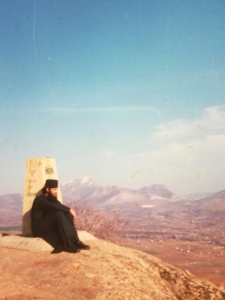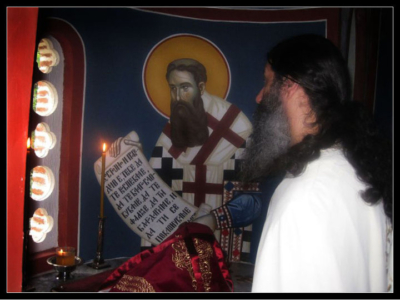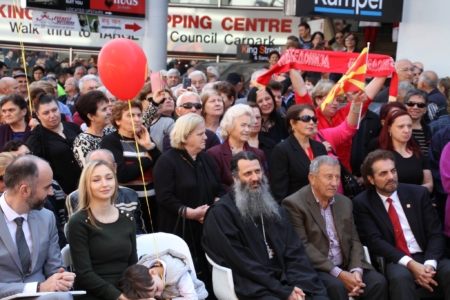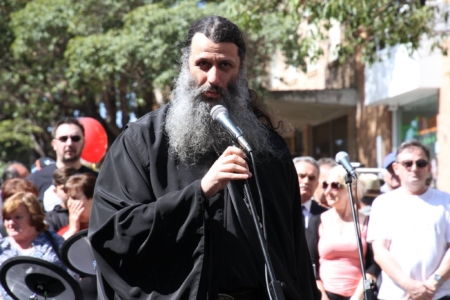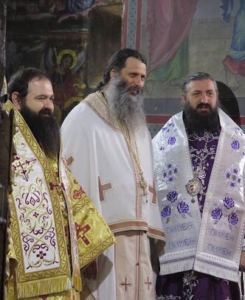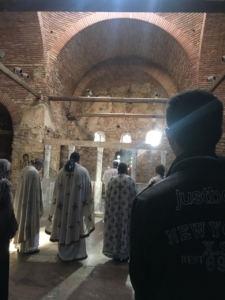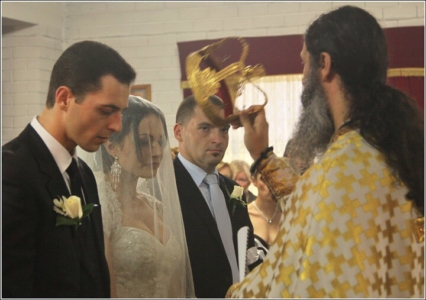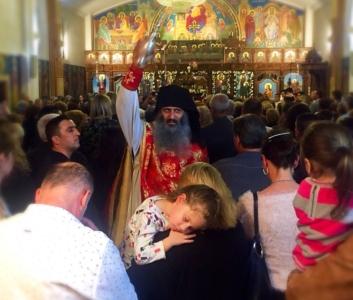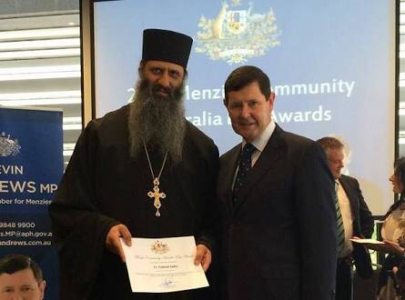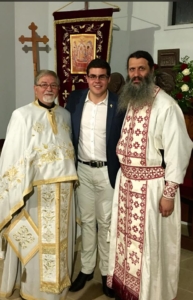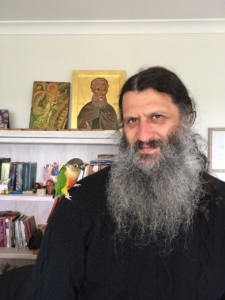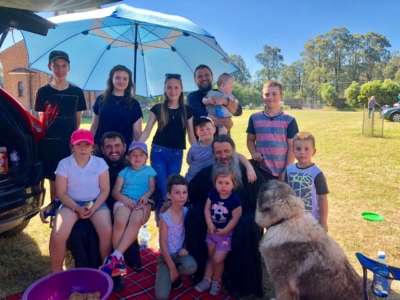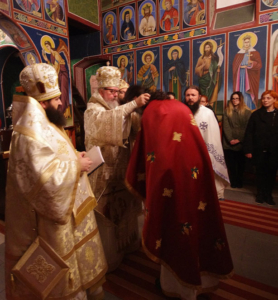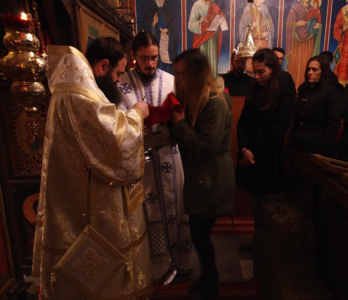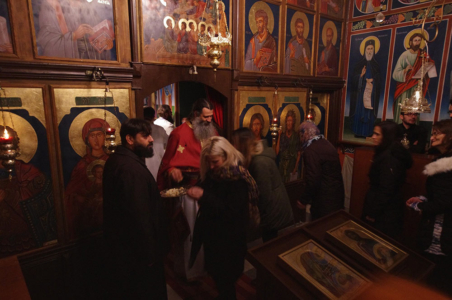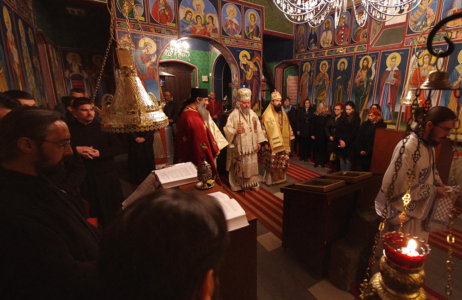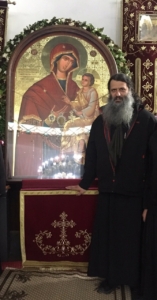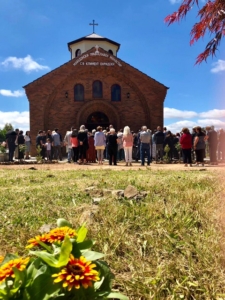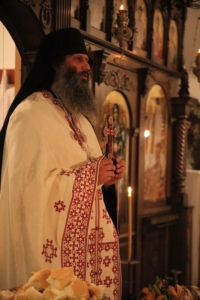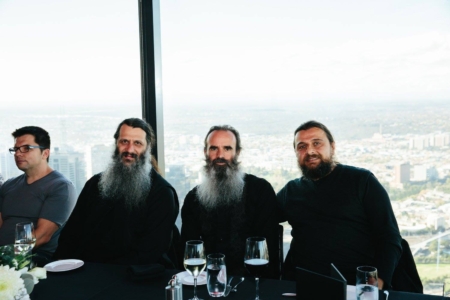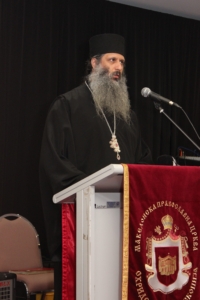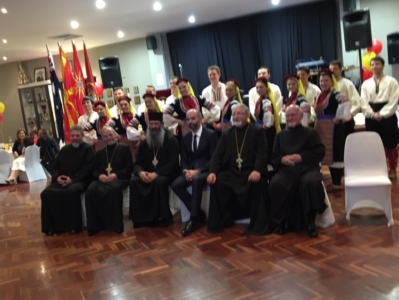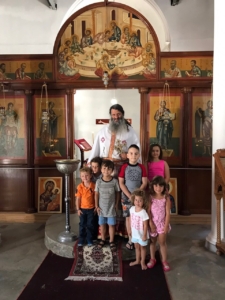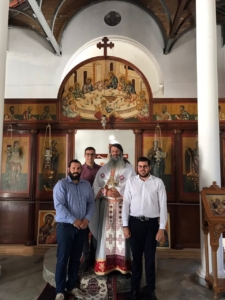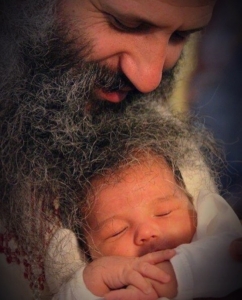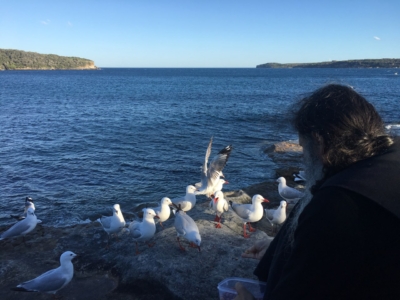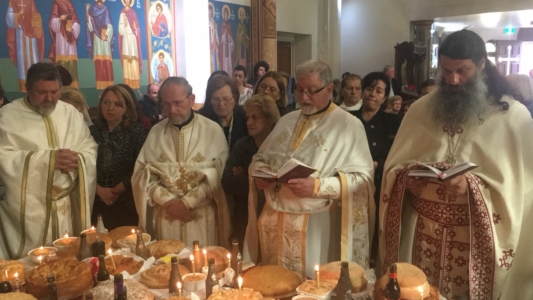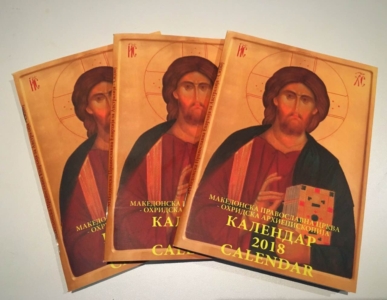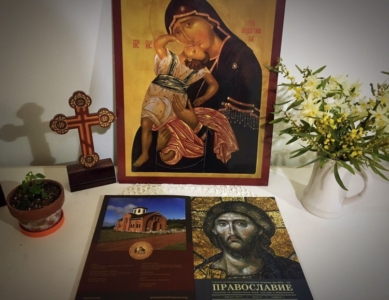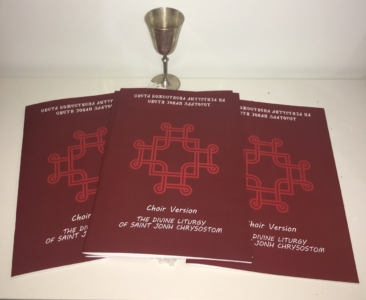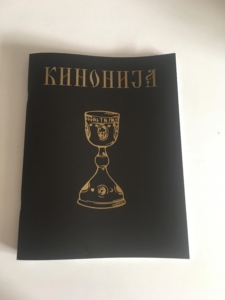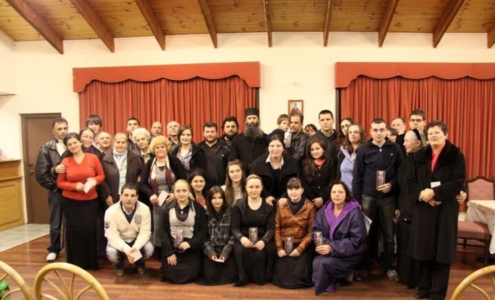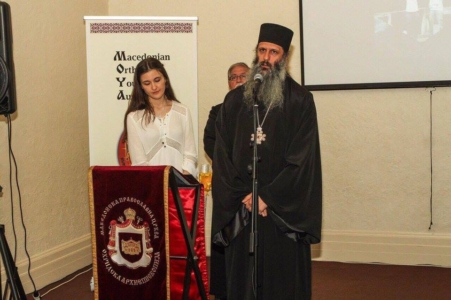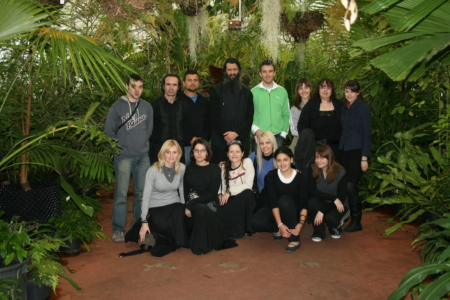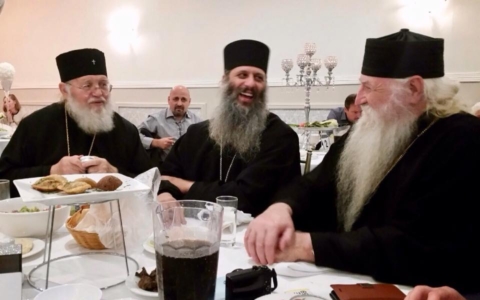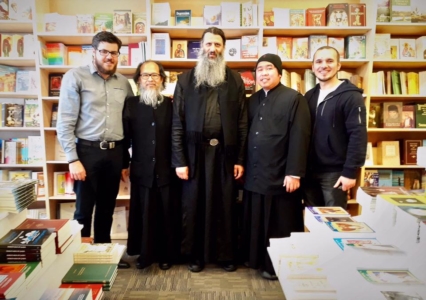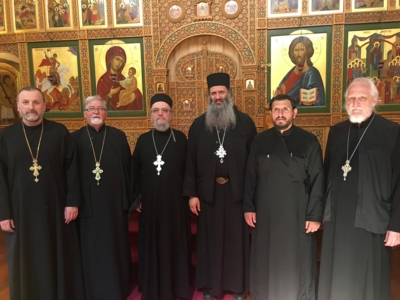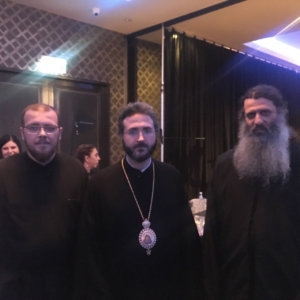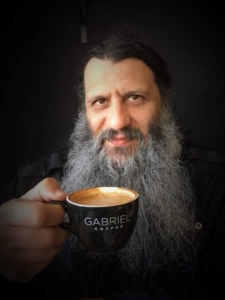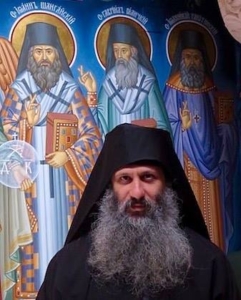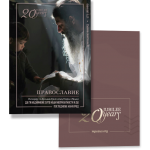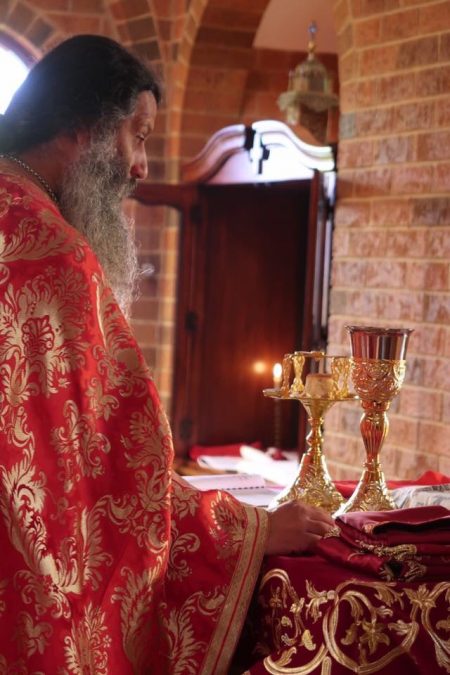
An interview with His Right Reverend Archimandrite Gavril
(Galev)[1], abbot of the monastery “St. Clement of Ohrid” in King Lake – for the magazine „Orthodoxy“ – The interview was held by
Dr. Ananija Ananievski
1 – Your Reverence, in the distant 1998 year you received monasticism, you were tonsured by your spiritual father,The Reverend Metropolitan of Strumica, Naum. This year it’s been over 20 years from that moment. Tell us something about how you decided to be a part of the monastic life and about those times of your life?
As the blessed Archbishop of Ohrid and Macedonia Mr Michael (in whose time the monasticism in the MOC OA was renewed) would say, monasticism is: “A main pillar and elite army” of the Church of Christ. The role of monasticism in The church is irreplaceable. A Monastic is the one who fully accepts the only commandment of love from our Lord: “Love the Lord, your God, with all your heart, and with all your soul, and with all your mind” and “love your neighbor as yourself “(Matt. 22: 36-40). He who separates himself from the world in order to be closer to God, he can at the same time in his own heart and prayers embrace all the world and humanity. The monk thus carries the Cross of Christ and participates in His life and carries His wounds on Himself.
It was a time of spiritual renewal in Macedonia, after the collapse of the communist atheistic system, when the people were allowed without fear to be believers in God and attend the church services.
At that time, the Serbian Orthodox Church (SOC) remarked that because we did not have monasticism, we had no conditions to be recognized as autocephalous Church.
In 1995 with the return of the monk Naum, who drew his monastic experience from the incessant springs of the Virgin(Mother Mary) Garden of Mount Athos, whom the Holy Hierarchical Synod of the Macedonian Orthodox Church – Ohrid Archbishopric (MOC-OA) chose and ordained the Metropolitan of Strumica diocese, that condition was fulfilled. Quite a few young souls gathered around him some of whom took on the cross of the monastic life.
The blessing of being a monk at the time was great. Although the conditions were inadequate and difficult, and the social circumstances dangerous, yet with God’s grace, we were encouraged and attracted. The grace of God, upon the request of the Mother of God, restored the monasticism in Macedonia. Hence the first monasticism, in the restored MOC-OA began from the monasteries Veljusa and Vodocha.
Later, everything got different. Thank God, now there are more than 200 monks and
nuns in over 20 open monasteries and all the atmosphere has been changed for the better.
2 – After several years spent in Macedonia, in 2006 with the blessing of the Reverend Metropolitan of Strumica Naum, from the position of Abbot, you decided to come to Australia, a turning point in some way in your life. You were the first Macedonian monk on Australian soil.The Macedonian people gladly accepted you from the first day, and their love towards you lasts to this day. What were the reasons that made you come to Australia? What challenges did you face and what did you accomplish?
Yes, with the blessing of my spiritual father, the Reverend Metropolitan of Strumica Naum, I came to Australia and I was the first Macedonian monk here. How did I make that decision? Although knowing about church problems in Australia, it was not hard to make that I decision. The monastic life is based on obedience and selecting the last place in longing for spiritual perfection. At that time, Bishop Nahum was preparing his own Doctoral thesis: “Hesychasm of the monastics of Mount Athos from the 20th century”, where in the first chapter it states that if we want to have a spiritual progress we need to give up on ourselves, to escape from all of the world’s vanity and reason for high opinion of oneself, by choosing obedience towards an elder who is not known by many, in an unknown monastery and in a foreign country, where we even don’t know the language. Another reason was the love for my people, and of course, above all, respect and trust towards my spiritual father.
The beginning was not easy. The people did not know anything about monasticism, and also the priests had no experience. The conditions we had in Macedonia and here were quite different. In Macedonia we already had organized and built monasteries and good conditions for monasticism, which was not the case here. Everything had to start from scratch. I tried to build honest personal relationships with the people which, as you say, last till today’s day.
The challenges were not small and easy, but thank God, with God’s blessing we started everything from the beginning and how successful it is, the Lord knows. There is always an opportunity for more, and of course it can be even worse. Where I am standing on that line, I do not know. I just know that everything bad was from me, and the good from the blessing of my spiritual father.
3 – For almost 10 years you were an Abbot of the monastery “St. Prohor Pchinski” in Donnybrook. God’s providence is wonderful, so in 2016 you started your mission in the newly formed Australian – Sydney diocese. You were appointed to be the Abbot of the first Macedonian monastery from this diocese, “St. Clement of Ohrid” in King Lake, Melbourne, but you stayed a whole year in Sydney, in a mission of the Church St Petka in Rockdale NSW. You faced as a hieromonk to perform parish activities. Tell us more about this experience as a parish priest in Rockdale, NSW?
It is not easy at all for a monk to live in the world and perform a parish service. My consolation was that I lived alone in an apartment on the seventh floor and I only watched the sky and the sea in the distance. My companion was Ilcho, my parrot.
I accepted that service as obedience and respect to my superior Bishop, His Eminence Timothy, Metropolitan of Debar and Kicevo and Administrator of Australia and Sydney. On July 31, I was told that I should go to Sydney, because the church of “St Petka” was left without a priest, and there were two upcoming religious holidays, St Ilija and the patron saint of St. Petka. So that the very next day I was in Sydney, and I will not forget my first meeting with the parishioners. They knew about the decision of Bishop Peter that he had withdrawn his priest and did not know what will happen in future. When on August 2, I appeared in the temple, their faces, their tears, their joy and gratitude to God that they were not left, touched me to tears. That moment cannot be forgotten.
All the time while I was there, we had a wonderful cooperation. To a great extent the confidence to the clergy was restored, the shattered brothers and sisters were reconciled and the people returned to the Church.
To me, these are dear and honest people, believers and patriots. During that year in Sydney, I met wonderful people with whom I hope we will continue to maintain our contacts. I have to separate some of them and publicly thank them. I am very grateful to prof. Robert Naumoski, who always was here for me and help me on every occasion and annoyance, along with his wife, Maya Naumoska, who sometimes came straight from work (she worked a third shift) and sang with her angelic voice in the Liturgy. Large gratitude to the President and the entire Managing Board of the CO, as well as to the sister Victoria who accepted me as her son and helped me in the Church and many others. Not to be unjust, I sincerely thank all of them, who most sincerely accepted me and in a way they made my burden easier for me.
4 – You are known as a great animal lover. As in the monastery in Donnybrook, here in King Lake as I can see you are surrounded by animals. From where is this great love for them and at the moment how many pets do you have?
I love animals. Currently i don’t have as many, but earlier, in my former monastery in Donnybrook, I had different animals and I had a plan to open a mini zoo for the children, or a “Children Farm”.
The animals are a gift from God for our help and comfort. From our attitude towards them, the content of our heart can be read. As our people say: “who does not love the animals, they don’t like the people too.” We should not idealize and equalize them with people, but love them and not harass them.
Many things can be learned from them. Nowadays when consciousness and love in mankind cools down and darkens, God, as with the jenny of Balaam, that spoke and cautioned them, so now in a way He speaks to us through them. For example, I had a parrot who prayed, so if he can be taught and repeat the Jesus prayer, how much more we humans can do it. Or now, for example, the parrot Ilcho that I have, is best friend with my kitten and they want to play. So if they, who in essence should be enemies, can understand one another and play together, how much more the Macedonians here, who speak the same language and have the same culture and origin ?! And many more examples.
Normally, I have to mention, and in order not to be misunderstood, we should have a proper attitude towards them. However, they are just animals and they do it instinctively, and we are free persons created according to the image and likeness of God.
5 – Last November during the visit to Macedonia you also received the highest monastic rank – Archimandrite. How did you spend this time in our Fatherland, what impressions you received and of course what is the feeling to have the highest monastic rank?
I love my country and my people and every year I go to Macedonia. With every trip back I gain new experience and impressions. This time, to be honest, I came back disappointed.
The honour of the Archimandrite rank, which was literally the last day, was a complete surprise and unexpected for me – and it raised me spiritually. Although many people, when they were seeing me off from here, wished for it.
I was already preparing to leave the country. I left Strumica and my brothers and sisters. I also greeted my own mother in Shtip, and I had to spend the night with my brother in Skopje, for the next day, I would go to the airport. When I was in Skopje, they called me to come to Kumanovo to a vigil, where His Eminence Naum in communion with their Eminence Joseph metropolitan of Kumanovo and Metropolitan Joseph of Tetovo made me an Archimandrite and gave me to carry a pectoral cross and scepter.
The Archimandrite rank for me, the unworthy, is just another bigger responsibility before God and the spiritual children who are entrusted to me. I sincerely thank them for their trust, and I hope that I will duly justify it.
6 – We know that we need to continuously work together in order to have a successful and prosperous Diocese and Community, however,on this road often in the past, and even now we are witnessing that there are various obstacles and errors. In what do you see the main stumbling block and in your view, as the most active shepherd, what is the way to solve most of the church problems of the MOC-OA in the fastest possible way in Australia and New Zealand?
In my opinion, the mistrust and the temptation of the clericalism and the contemporary heresy in the Church is the biggest obstacle. First of all, we need to know what is right for the Church and which relations and rules govern in it and to align our lives accordingly.
The mistakes are inevitable for those who work. But the mistakes are for repairing. We can only correct them in a good way, especially for us in the Church. Nothing is good, if it is done in a bad or wrong way. Things can be fixed and changed, if we accept them as our own and we personally change for the good.
Priests are not some particular group of people that need to be isolated from the people and obey different laws. They should be with the people and the people should feel like they are their own. A true leader is not the one who stands above the people, but the one who goes before the people. And then it will be, as the Holy Apostle John says in his Gospel: “Truly, truly, I say to you, whoever does not enter into the sheep pen by the gate, but skips from the other side is a thief and a robber; but whoever enters from the door is a Shepherd of the sheep; to him the doorkeeper opens it, and the sheep hear his voice, and he calls his sheep by their name; and leads them out. And when he has lead his own sheep, he goes before them, and the sheep go after him, because they know his voice; and by another man they do not go, but flee from him, for the voice of the stranger they do not know “(John 10: 1-5).
The mutual trust and respect must be improved. It’s the only condition to overcome all our misunderstandings and problems and I think that we should pay special respect and gratitude to the pioneers and the people through whom everything started here. We shouldn’t, and it is a sin, to deny their work, even if they had errors.
7 – We are witnessing an enhanced missionary movement of the Australian – Sydney diocese amongst the people. With the blessing of the authorised Archbishop Mr. Timotej, a Diocesan Council of Ecclesiastical Councils (ECPS) was formed, which worked on a number of projects. What has been achieved so far in the missionary field and how many of these missionary projects help in the process of raising spirituality and advancing the spiritual progress of Macedonians in Australia and how are they accepted?
Together with God’s blessing and grace, and with the blessing of our authorised Archbishop Timotej who sanctified the forming of the diocesan church-education council (ECPS) that seriously took up the job – we succeeded in creating a freshness in the missionary field which later helped influence the enhancement of the spirituality in the faithful.
An additional diocesan group-information service was formed that created the diocesan website www.mpcaus.org and the presence in the social media forums: facebook, Instagram and youtube that are actively informing the faithful on a daily basis. Publishing efforts were also made, with the creation of the magazine “Orthodoxy” where 3 issues have been printed so far with the 4th issue currently in completion. For the first time, a diocesan pocket Orthodox calendar for the year 2018 was printed. The diocesan “Transfiguration” is published electronically. Some time ago the diocesan periodical “Kinoniya”, as well as the divine book “Divine Liturgy of St. John Chrysostom”, came out of the press.
Surely all of these projects together contributed and helped some kind human soul to start their spiritual journey. Therefore, encouraged by our believers for all that we have done as a team so far – we will continue in the future to please them all and to increase the number of the faithful in the Church of God.
8 – During this period of time with the arrival of several new young priests, it seems that gradually and certainly an end will be put to most problems that have long tormented the Macedonian community. It has been established that the MOC-OA in Australia requires new young and fresh blood, new people who will bring freshness. The only missing thing is the unification of the two dioceses in one, which will be lead by a new Archbishop, with a permanent headquarters in Australia. The people have the greatest confidence in you. If the Holy Bishop’s Synod comes to a decision that will finally resolve the problems and appoint you as a bishop, would you accept that God’s call?
Who will become an Archbishop for Australia and New Zealand is decided by SAS of the MOC-OA, so whether that will be me, it does not depend on me. The Synod chooses it, and the people confirm it.
I only know that for a monk, who needs to endeavor in his humility and dying for the world, the thought of wanting to thrive in the hierarchy, especially the need to become a bishop, is ruinous. Therefore, I leave this question to God’s will and the decision of the SAS of the MOC-OA.
I am grateful to his Eminence Timotej, who with his arrival as the Administrator of the newly formed Australian-Sydney Diocese, despite some denying, accomplished a lot. He was formerly a Bishop in charge of the whole of Australia and is well known to the people and circumstances, so that with his pastoral wisdom he took the responsibilty to normalize and resolve all the negatives and mistakes of the past. The new priests are only part of his responsibility.
9- You are also the President of the Macedonian Orthodox Youth of Australia (MOYA). You are in daily contact with the young people and together you realize many projects. A short time ago in the monastery of King Lake the 11th Macedonian Orthodox Seminar was held. What kind of projects and activities do you expect to complete with the youth in 2018?
MOYA has existed for 12 years, since my arrival in Australia, and has been actively working amongst our youth with many successfuly completed projects. The Youth Annual Seminar is the main activity of MOYA and again this year it was successfully implemented.
Last year, the youth entrusted me with the honor of being President of the Organisation. Soon there should be a new general assembly to talk about what was achieved last year and what we expect in the upcoming one. I am slowly aging and not so young anymore, so the new priests need to make an effort and take over the work with the Youth Organisation. A new leadership will be selected that will continue to dictate the activities of the organisation. I am glad that MOYA has existed and functioned for twelve years whilst growing into a recognisable and important Organization to our Church and community.
10 – Do you often take the opportunity to make visits and contacts with representatives of the local Churches? What are the relations of the MOC-OA with the local Orthodox churches that exist on the Australian soil?
I consider it necessary and normal to communicate and maintain contacts with other sister Orthodox churches. We know our problems about the need for affirming the MOC-OA. Australia is a multiethnic and multicultural country that promotes those interethnic relations and we should use it wisely.
Many times, before I go to such meetings, I hesitate and wonder how I will be accepted, but they have always accepted me sincerely and with an open heart.
Therefore, I think that firstly we should do it personally to improve our friendly personal relationships, and then administratively.
Nevertheless, we should be open, we should communicate and understand that we are a complete Church and a part of one, holy, catholic and apostolic Church.
11 – As Editor in Chief, what do you think of the journal “Orthodoxy”, does it contribute to the development of the mission of the newly established Australian – Sydney diocese in informing its believers of religious and diocesan events?
The mission in all its forms, including the written word, is the basic product, the fruit of a Church. Fruit, which at the same time is the seed for larger fruits. Knowing this, we did not hesitate in organizing and publishing our diocesan informative newsletter, which we simply called “Orthodoxy”. With very few active people, but with great enthusiasm, we unselfishly pledged “Orthodoxy” to look more attractive and more acceptable to our people here, who have a vital need for spiritual nourishment.
For the time being, we have pubished three issues and despite good criticism I think it is still early to speak about real results, but it certainly contributes to the development of the mission of the newly formed Australian-Sydney Diocese.
12 – Lastly, Your Reverence, what pastoral message would you like to send to the readers of our magazine?
I have only one desire, to see my people unified and as one. We need to know that the devil is our only enemy, not the man, so that all our struggles are directed towards him. Sometimes, when we miss the will of God, more or less, we serve (the devil) and in that way we are hurting ourselves. Unfortunately, we have suffered a lot from the enemy, both from the outside and inside, but let us forget. Let’s overcome all our inconveniences and look ahead. Much is missed, but if we are still turning back, we will miss what we can save. If we concentrate on making the present good, then our future will be safer and happier. No one else will do it for us. We need to make an effort. Let’s firstly begin with ourselves and thus help everyone, the community. There is no other way, even a choice.
May the Lord and the Mother of God be with all of us and help us in all the days of our lives. Amen!
- 02. 2018
The interview was held by:
Dr. Ananija Ananievski
Vice president of MOYA and member of ECPS
[1] Archimandrite Gavril Galev is born in city of Shtip, Republic of Macedonia. Graduated on the Orthodox Theological Faculty in Skopje. Monastic vows took under spiritual guidance of metropolitan of Diocese of Strumica, his eminence bishop Naum. After teen years monastic life in the diocese of Stumica, in 2006 father Gavril guided by the God’s providence goes to Australia, becoming the very first Macedonian monk in Australia, living a monastic life according to the traditions of the orthodox church. From that moment and up to the 2016, father Gavril was acting superior of the monastery St. Prohor of Pcinja, settled in Donnybrook, place near to Melbourne. From 2016 up to 2017, a period of about one year, due to some pastoral needs and with the blessing of his eminence bishop Timothy, acting administrator of the Diocese of Australia and Sydney, Father Gavril served as a parish priest in the Church St. Petka in Rockdale, Sydney. In 2017 Father Gavril was elevated into church dignity of Archimandrite. In now days Father Gavril is superior of the monastery St. Clement of Ohrid which belong to the diocese of Australia and Sydney, and is located in, Kinglake near city of Melbourne. Father Gavril, also is acting president of the MOYA (Macedonian Orthodox Youth of Australia) society. Father Gavril in now days, is very active in the field of orthodox mission and spirituality. He is also one of the founders of the diocesan newsletter Pravoslavie. Father Gavril is highly respected Spiritual Father and Pastir, well known in Macedonian orthodox community, as well as in other orthodox communities living in Australia.

